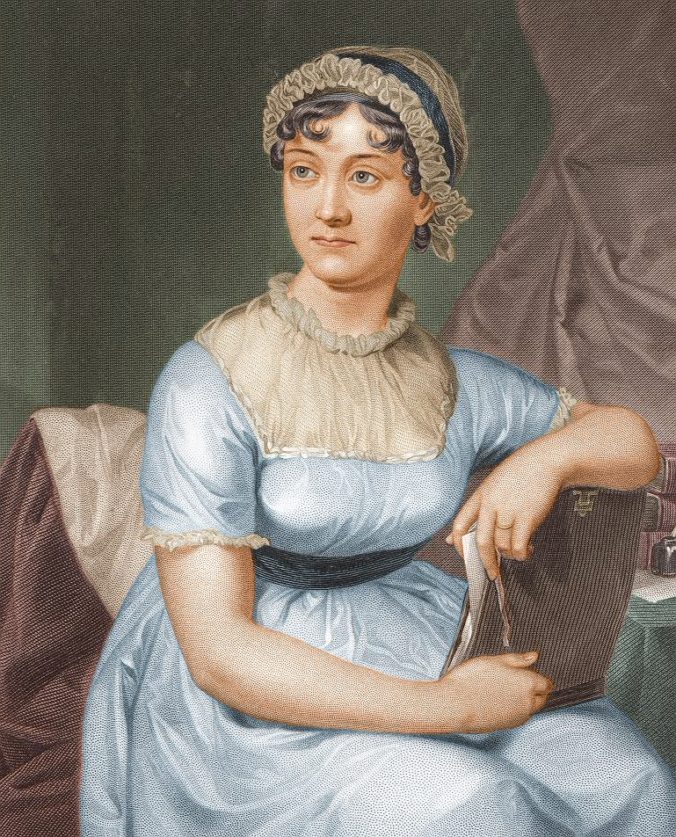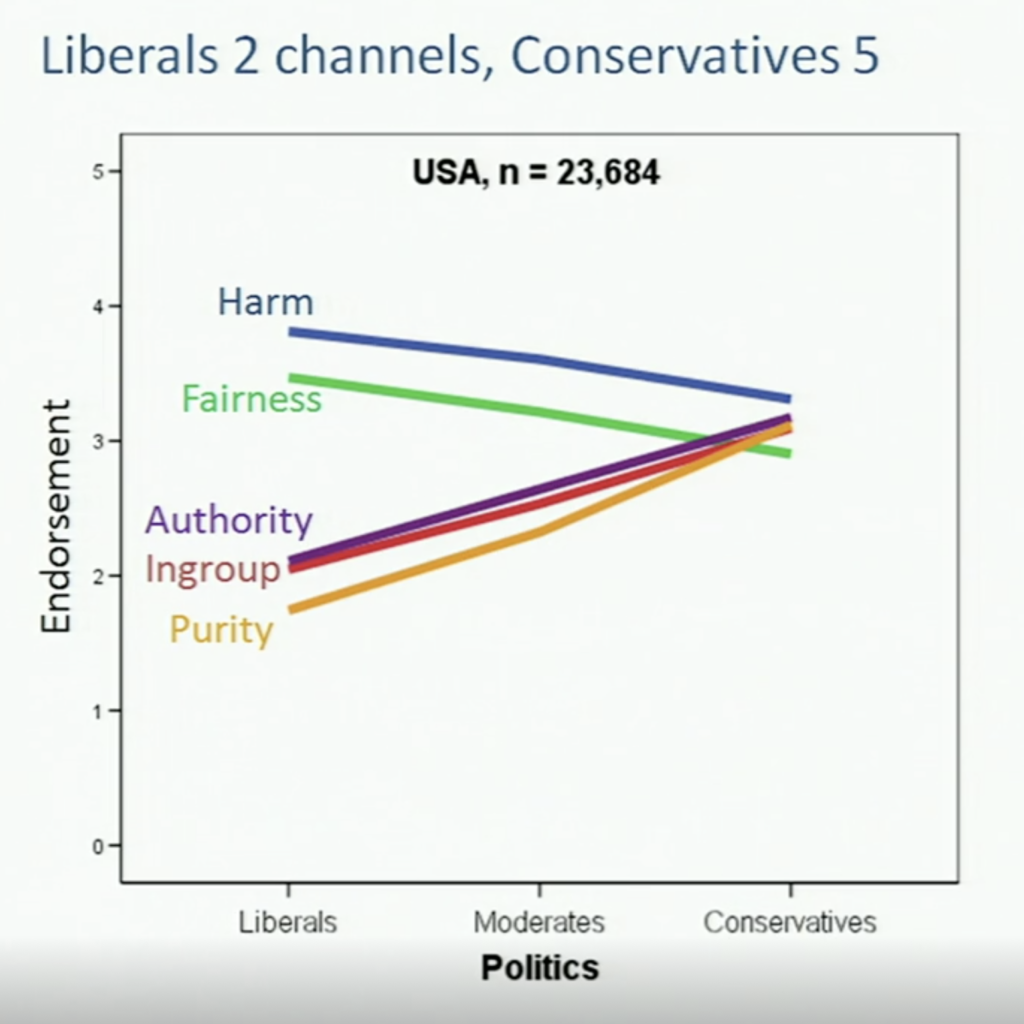If you’ve spent anytime on the internet in the last few days, you might have noticed another momentous shift in the political divide in the U.S.
Instead of acknowledging the hypocrisy of opposing political ideologies, or even observing the similarities between them, the recent events at Capitol Hill have only pushed both sides further apart. Convictions are getting stronger, not weaker. And if we’re learning anything from these political divisions, it’s that people will accommodate any narrative to fit their belief systems, regardless of contradictions.
But why?
It’s because we live in a society with a humility problem; where admitting when we’re wrong is more painful than it should be; where we enclose ourselves in echo chambers, in which our ideas and values are continuously validated and enforced by others just like us; where we marry our identities and our egos to our world views, so that changing our minds is (wrongly) misconstrued as weakness; and where we lack the emotional and intellectual humility required to detect out own cognitive biases and blind spots, necessary to make meaningful change possible.
Thats why I’ve collected 30 quotes that I think everyone should read. It’s wise words like these that should be guiding our political discourse and moral compasses, not our emotions, egos, and ignorance.
I hope they are as helpful for you as they have been for me.
1.
“Most misunderstandings in the world could be avoided if people would simply take the time to ask, “What else could this mean?”
Shannon L. Alder
2.
“If there is doubt, don’t claim you are certain. It is amazing how relaxing it is not to pretend to know more than you do.”
Christopher Hitchens
3.
“Man has both potentialities within himself (to behave like swine or saints); which one is actualized depends on decisions but not on conditions”
Viktor Frankl
4.
“(People in Western societies) have begun to realize that the difficulties confronting us are moral problems, and that the attempts to answer them by a policy of piling up nuclear arms or by economic “competition” is achieving little, for it cuts both ways. Many of us now understand that moral and mental means would be more efficient, since they could provide us with psychic immunity against the ever-increasing infection.
But all such attempts have proved singularly ineffective, and will do so as long as we try to convince ourselves and the world that it is only they (i.e., our opponents) who are wrong. It would be much more to the point for us to make a serious attempt to recognize our own shadow and its nefarious doings. If we could see our own shadow (the dark side of our nature), we should be immune to any moral and mental infection and insinuation. As matters now stand, we lay ourselves open to every infection, because we are really doing practically the same thing as they. Only we have the additional disadvantage that we neither see nor want to understand what we ourselves are doing, under the cover of good manners.”
CArl Jung
5.
“The most difficult subjects can be explained to the most slow-witted man if he has not formed any idea of them already; but the simplest thing cannot be made clear to the most intelligent man if he is firmly persuaded that he knows already, without a shadow of doubt, what is laid before him.”
Leo Tolstoy
6.
“Suppose one reads a story of filthy atrocities in the paper. Then suppose that something turns up suggesting that the story might not be quite true, or not quite so bad as it was made out. Is one’s first feeling, ‘Thank God, even they aren’t quite so bad as that,’ or is it a feeling of disappointment, and even a determination to cling to the first story for the sheer pleasure of thinking your enemies are as bad as possible? If it is the second then it is, I am afraid, the first step in a process which, if followed to the end, will make us into devils. You see, one is beginning to wish that black was a little blacker. If we give that wish its head, later on we shall wish to see grey as black, and then to see white itself as black. Finally we shall insist on seeing everything — God and our friends and ourselves included — as bad, and not be able to stop doing it: we shall be fixed for ever in a universe of pure hatred.”
C.S. LEWIS
7.
“I imagine one of the reasons people cling to their hates so stubbornly is because they sense, once hate is gone, they will be forced to deal with pain.”
James Baldwin
8.
“It does take great maturity to understand that the opinion we are arguing for is merely the hypothesis we favour, necessarily imperfect, probably transitory, which only very limited minds can declare to be a certainty or a truth.”
Milan Kundera
9.
The world is suffering from intolerance and bigotry, and from the belief that vigorous action is admirable even when misguided; whereas what is needed in our very complex modern society is calm consideration.”
Bertrand Russell
10.
“Let me never fall into the vulgar mistake of dreaming that I am persecuted whenever I am contradicted.”
Ralph Waldo Emerson
11.
“Everyone thinks of changing the world, but no one thinks of changing himself.”
Leo Tolstoy
12.
“Nothing is easier than to denounce the evildoer, nothing is more difficult than to understand him.”
Fyodor Dostoevsky
13.
“The test of a first-rate intelligence is the ability to hold two opposed ideas in the mind at the same time, and still retain the ability to function.”
F Scott. Fitzgerald
14.
“What gets us into trouble is not what we don’t know, It’s what we know for sure that just ain’t so.”
Mark Twain
15.
“He who knows only his own side of the case knows little of that. His reasons may be good, and no one may have been able to refute them. But if he is equally unable to refute the reasons on the opposite side, if he does not so much as know what they are, he has no ground for preferring either opinion… Nor is it enough that he should hear the opinions of adversaries from his own teachers, presented as they state them, and accompanied by what they offer as refutations. He must be able to hear them from persons who actually believe them…he must know them in their most plausible and persuasive form.”
John Stuart Mill
16.
“Thinking is difficult, that’s why most people judge.”
Carl Jung
17.
“When faced with people’s bad behaviour, turn around and ask when you have acted like that.”
Marcus Aurelius
18.
“Resist the urge to blame the media for lying to you or for giving you a skewed worldview. Resist blaming experts for focusing too much on their own interests and specializations or for getting things wrong. In fact, resist blaming any one individual or group of individuals for anything. Because the problem is that when we identify the bad guy, we are done thinking. And it’s almost always more complicated than that. It’s almost always about multiple interacting causes—a system. If you really want to change the world, you have to understand how it actually works and forget about punching anyone in the face.”
Hans Rosling
19.
“Your assumptions are your windows on the world. Scrub them off every once in a while, or the light won’t come in.”
Isaac Asimov
20.
“If someone isn’t what others want them to be, the others become angry. Everyone seems to have a clear idea of how other people should lead their lives, but none about his or her own.”
Paulo coelho
21.
“The man who never alters his opinion is like standing water, and breeds reptiles of the mind.”
William Blake
22.
“People seem not to see that their opinion of the world is also a confession of character.”
Ralph Waldo Emerson
23.
“I beseech you, in the bowels of Christ, think it possible you may be mistaken.”
Oliver Cromwell
24.
“All war is a symptom of man’s failure as a thinking animal.”
John Steinbeck
25.
“Calling it lunacy makes it easier to explain away the things we don’t understand.”
Megan Chance
26.
“When you run up against someone else’s shamelessness, ask yourself this: Is a world without shamelessness possible?
Marcus Aurelius
No. Then don’t ask the impossible. There have to be shameless people in the world. This is one of them. The same for someone vicious or untrustworthy, or with any other defect. Remembering that the whole world class has to exist will make you more tolerant of its members.”
27.
“The right to criticize someone else has to be won, deserved. If, in general, you treat another with hostility or contempt, your slightest adverse remark, whether justified or not, will be seen as a sign of aggression, much more likely to make him obstinate and unapproachable than to persuade him to change for the better.
Conversely, if you show someone friendship, sympathy and consideration, not merely superficially but in a manner that is sincere and felt to be so, then you may allow yourself to criticize with some hope of being heard, things about him that you regard as open to objection.”
Amin Maalouf
28.
“It is the job of thinking people not to be on the side of the executioners.”
Albert Camus
29.
“It’s an universal law– intolerance is the first sign of an inadequate education. An ill-educated person behaves with arrogant impatience, whereas truly profound education breeds humility.”
Aleksandr I. Solzhenitsyn
30.
“People are almost always better than their neighbors think they are.”
George Eliot



Recent Comments